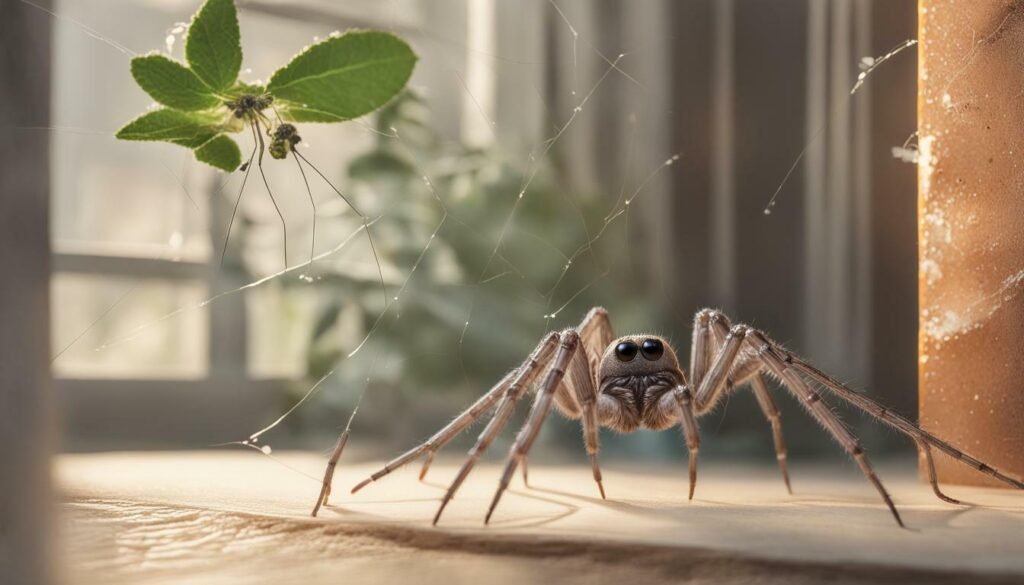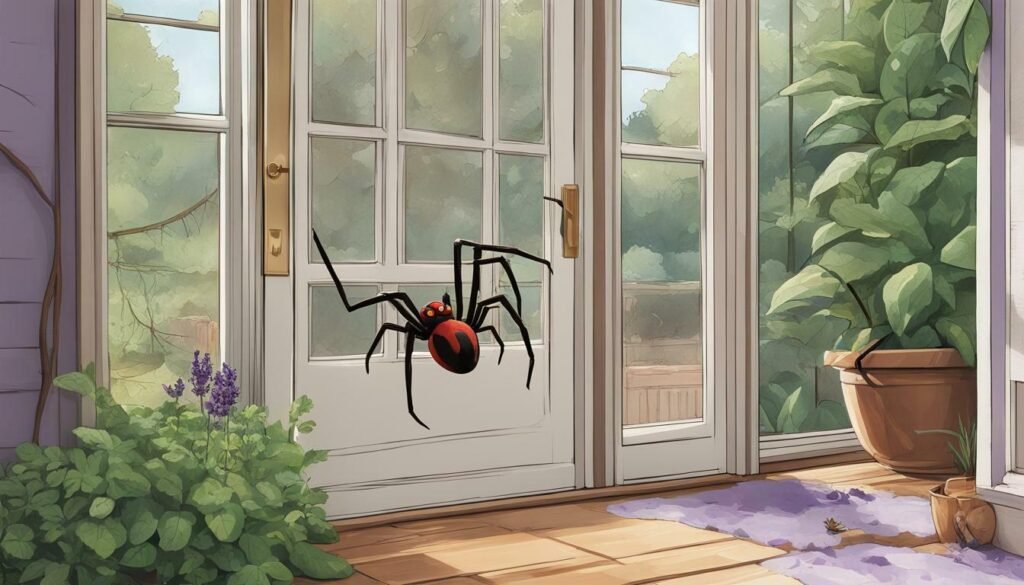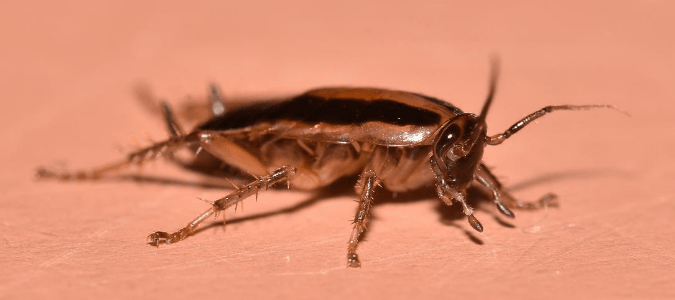Spiders are a common household pest that can cause anxiety for many homeowners. While most spiders are harmless, their presence can be unsettling, and some species can be dangerous if handled improperly. That’s why it’s important to take steps to keep spiders out of your home.
In this article, we’ll provide you with effective spider control methods, spider prevention tips, natural remedies for spider infestation, and ways to spider-proof your home. You’ll learn how to identify common spider species and how to create a long-term strategy to maintain a spider-free environment.
Key Takeaways
- Preventing spiders from entering your home is essential for maintaining a clean and safe living environment.
- There are natural remedies and spider control methods that can be used to repel and eliminate spiders.
- Spider-proofing your home and outdoor spaces can help minimize spider activity.
- Regular maintenance tasks are crucial for maintaining a spider-free environment.
Understanding Spiders: Common House Spider Deterrents
Spiders are common household pests that can be a nuisance for homeowners. They are attracted to warm, cozy places where they can hide and spin webs, making your home their perfect habitat. By understanding their behaviors and preferences, you can take steps to keep these creepy crawlers out of your house.
One of the most effective ways to deter spiders from your home is by spider-proofing it. This involves identifying and blocking potential entry points and removing hiding spots that may attract spiders. Some common areas to check include:
| Area | Spider Prevention Tips |
|---|---|
| Doors and windows | Use screens and door sweeps to prevent spiders from entering your home. |
| Cracks and gaps | Seal any cracks and gaps in walls, floors, and foundation to prevent spiders from accessing your home. |
| Cluttered areas | Remove clutter and debris from your home, as they can provide hiding spots for spiders. |
Another effective method of spider control is natural repellents. Spiders dislike certain scents, so using essential oils or vinegar can help to keep them away. Chestnuts are another natural ingredient that spiders dislike, so placing them around your home can be an effective deterrent.
However, if you are dealing with a severe spider infestation, you may need to use insecticides or spider traps. It is important to use these methods safely and sparely, as they can be harmful to humans and pets.


By taking these steps to spider-proof your home and using natural deterrents, you can effectively keep spiders out of your house. Remember to regularly clean and maintain your home to ensure a spider-free environment.
Natural Spider Repellents: DIY Spider Repellents and Remedies
Are you tired of relying on chemical-based repellents to keep spiders away from your home? Luckily, there are several natural remedies for spider infestations that you can make right at home. Not only are these remedies effective at repelling spiders, but they are also safe for your family and the environment. Here are some natural spider repellents and DIY spider repellents to try:
| Natural repellent | How to use |
|---|---|
| Essential oils | Mix several drops of peppermint, lavender, or citrus essential oil with water in a spray bottle. Spray around windows, doors, and other entry points to keep spiders away. Repeat every few days. |
| Chestnuts | Place several chestnuts in each corner of your home, on windowsills, and other areas where spiders may enter. Chestnuts contain a natural chemical that repels spiders. |
| Vinegar | Mix equal parts water and vinegar in a spray bottle. Spray around cracks, crevices, and other areas where spiders may be hiding. Repeat daily until spiders are gone. |
| Garlic | Boil several cloves of garlic in water and let the mixture cool. Pour into a spray bottle and spray around your home’s perimeter, windows, doors, and other entry points. Repeat every few days. |
| Pepper | Mix 1 tablespoon of black pepper with a cup of water in a spray bottle. Spray around your home’s perimeter, windows, doors, and other entry points. Repeat daily until spiders are gone. |
In addition to these natural remedies, there are also several everyday household items that can be used to repel spiders. For example, placing citrus peels, tobacco, or eucalyptus leaves around your home can deter spiders. Also, keeping your home clean and free of clutter makes it less appealing for spiders to set up camp.


By using natural spider repellents, you can protect your home from spider infestations without relying on harmful chemicals. These remedies are easy to make and can be just as effective as store-bought repellents. Try these natural remedies today and say goodbye to pesky spiders for good.
Spider Prevention Tips: Keeping Spiders Away
Preventing spiders from entering your home is the most effective way to keep them away. Here are some tried and tested spider prevention tips:
- Seal cracks and gaps: Check your doors, windows, and walls for any cracks or gaps where spiders can enter. Seal them with caulk or weatherstripping to keep spiders out.
- Keep your home clean: Spiders are attracted to clutter and dust. Regularly sweep, vacuum, and dust your home to keep it spider-free. Pay special attention to dark corners and hidden spaces where spiders like to hide.
- Use screens and door sweeps: Install screens on your windows and doors and use door sweeps to seal the gaps between your doors and floors.
- Keep the lights off: Spiders are attracted to light, especially at night. Keep your lights off when you’re not in a room, or use yellow light instead of white light to make it less attractive to spiders.
By following these simple spider prevention tips, you can keep spiders away from your home and enjoy a spider-free living space.


Best Ways to Keep Spiders Out: Effective Spider Control Methods
When it comes to spider control, there are a variety of methods you can use to keep spiders out of your home. Here are some of the most effective spider control methods:
Spider Traps
Spider traps are a safe and effective way to catch and remove spiders from your home. These traps use a sticky substance to trap spiders and other insects, making them unable to escape. Place the traps in areas where spiders are likely to hide, such as under furniture, in storage areas, or near windows.
Vacuuming Spiders and Their Webs
If you spot a spider or spider web, use a vacuum to remove it. Be sure to dispose of the vacuum bag or empty the canister outside of your home to prevent any spiders from escaping.
Using Insecticides Sparingly and Safely
If you need to use insecticides to control spiders, be sure to read the label carefully and use them only as directed. Avoid using insecticides near food, and keep them out of the reach of children and pets. Consider using natural remedies before resorting to chemicals.
Combining these spider control methods with regular cleaning and maintenance is the best way to keep spiders out of your home. Remember to seal cracks and gaps, keep windows and doors secure, declutter, and use screens and door sweeps to deter spiders.


With these spider prevention tips in mind, you can enjoy a spider-free home without the need for harmful chemicals or costly extermination services.
Maintaining a Spider-Free Home: Long-Term Strategies
Now that you’ve taken proactive measures to spider-proof your home, it’s important to maintain a spider-free environment for the long-term. By following these strategies, you can keep spiders out of your home for good.
Regular Cleaning Routines
Cleaning your home regularly is crucial to keeping spiders at bay. Dust and vacuum all surfaces, paying special attention to corners, crevices, and other potential hiding spots. Don’t forget to clean under furniture and appliances, as well as inside closets and storage areas. Remove any cobwebs you find and dispose of them promptly. A clean home makes spiders less likely to take up residence.
Outdoor Maintenance
Spiders often enter homes from outdoor spaces, so it’s important to keep your yard and garden spider-free. Remove any debris, such as leaves, grass clippings, and woodpiles, that may attract spiders. Keep trees and bushes trimmed away from your home and clean gutters and downspouts regularly. By maintaining a tidy yard, you’ll reduce the likelihood of spiders taking up residence in your outdoor spaces.
Ongoing Spider-Proofing Measures
To maintain a spider-free home over the long-term, you should make ongoing spider-proofing part of your routine. Regularly inspect your home for cracks, gaps, and holes that spiders could use to enter. Seal up any openings you find with caulk or weather stripping. If you use screens or door sweeps, make sure they’re in good condition and replace them if necessary. By staying vigilant and addressing potential spider entry points as soon as they appear, you can deter spiders from entering your home.


By following these long-term strategies, you can maintain a spider-free environment and enjoy a cleaner, healthier home. Remember, keeping spiders out of your home requires ongoing effort, but the payoff is worth it.
Natural Spider Repellents: DIY Spider Repellents and Remedies
If you’re looking for a natural way to keep spiders out of your home, look no further! There are several DIY spider repellents and remedies you can use that are both effective and safe for your family and pets.
Essential oils: Spiders hate strong scents, so using essential oils such as peppermint, lavender, or tea tree can help keep them at bay. Mix a few drops of your preferred oil with water in a spray bottle and spritz around windows, doors, and other entry points.
| Chestnuts: | Believe it or not, chestnuts are a natural spider repellent. Place a few chestnuts along windowsills, doorways, and other areas where spiders may enter your home. |
|---|---|
| Vinegar: | Vinegar has a strong smell that spiders don’t like. Mix equal parts water and vinegar in a spray bottle and use it to wipe down surfaces around your home. |


Another natural remedy is diatomaceous earth, a fine powder made from fossilized algae. This powder is harmless to humans and pets but deadly to spiders and other insects. Sprinkle it around your home’s foundation and other entry points.
By using natural remedies, not only are you protecting your family and pets, but you’re also helping the environment by avoiding the use of harsh chemicals.
Tackling Specific Spider Species: Identification and Solutions
It’s important to identify the type of spider infesting your home, as different species have unique behaviors and preferences. Common house spiders, for example, are often found in dark, secluded corners and feed on other insects.
To effectively control spider populations in your home, you should consider using targeted methods specific to the type of spider. For example, if you’re dealing with a wolf spider, you may need to focus on removing cluttered areas and sealing potential entry points.
| Spider Species | Identifying Features | Solutions |
|---|---|---|
| Black Widow | Shiny black body with red hourglass on the abdomen | Use insecticides and vacuum webs regularly |
| Brown Recluse | Dark brown body with violin-shaped markings on the head and back | Seal cracks and crevices, use glue traps, and vacuum regularly |
| House Spider | Yellowish-brown or gray body with dark stripes | Vacuum webs regularly and use insecticides if necessary |
| Wolf Spider | Large, hairy bodies with distinct eye patterns | Remove clutter and seal entry points to prevent infestation |


By properly identifying the type of spider, you can take the necessary steps to keep them out of your home for good.
Remember to use spider prevention tips and effective spider control methods to keep your home free of unwanted guests.
Spider-Proofing Outdoors: Protecting Your Yard and Garden
Spiders are not exclusive to the inside of your home. They may also be present outside, in your yard and garden. In this section, we will discuss spider prevention tips and spider-proofing techniques for your outdoor spaces.
Landscaping Techniques
One of the first steps in spider-proofing your yard and garden is to maintain a well-manicured landscape. Overgrown vegetation and piles of leaves or debris can create ideal hiding spots for spiders. To reduce spider activity, trim back bushes and shrubs, rake up fallen leaves and debris, and keep your lawn well-maintained.
Remove Hiding Spots
Spiders love to hide in small crevices and cracks. Remove any debris or clutter that may have accumulated around your home’s exterior, including woodpiles, rocks, and debris. Seal any cracks, gaps, or holes that could serve as entry points into your home.
Natural Deterrents
There are several natural deterrents that can be used to keep spiders away from your outdoor spaces. Peppermint oil, citrus, and vinegar are all effective solutions that spiders dislike. You can also use cedar mulch or plant lavender, eucalyptus, or mint around your yard and garden to repel spiders.
Remember, regular maintenance is key to ensuring a spider-free environment both inside and outside your home. By following these spider prevention tips and spider-proofing techniques, you can enjoy a spider-free outdoor space.


Maintaining a Spider-Free Environment: Regular Maintenance Checklist
Keeping spiders out of your home requires ongoing effort and regular maintenance. Here are some spider prevention tips and spider-proofing measures you can take to maintain a spider-free environment:
- Seal any cracks or gaps in the exterior of your home with caulk or weatherstripping
- Install screens on windows and doors to prevent spiders from entering
- Keep your yard well-maintained by trimming back shrubs and trees, removing debris and clutter, and reducing the use of outdoor lighting
- Use a vacuum or broom to remove spider webs, egg sacs, and spiders from the corners of your home and in hard-to-reach areas
- Declutter your home and get rid of any items that may provide hiding spaces for spiders
- Inspect items that you bring into your home from the outdoors, such as firewood or potted plants, for spiders and other pests
- Use door sweeps to block any gaps between doors and the floor
- Keep your home clean and free of any food debris that may attract spiders and other pests
By following these spider prevention tips and spider-proofing measures, you can maintain a spider-free environment and enjoy a pest-free home. Remember to stay vigilant and stay on top of regular maintenance to keep those eight-legged creatures at bay!


Conclusion
Congratulations! You have now learned all the effective methods for keeping spiders out of your home. By understanding the behavior and preferences of spiders, you can take proactive steps to spider-proof your home. Use the natural remedies and prevention tips highlighted in this article to keep spiders at bay.
Remember, regular cleaning and maintenance is key to maintaining a spider-free environment. Use the checklist provided in this article to ensure you are doing everything you can to keep your home spider-proof.
By implementing the strategies discussed in this article, you can enjoy a spider-free home and yard. Don’t let spiders take over your space, take control today and keep them at bay!
FAQ
Q: What keeps spiders out of the house?
A: There are several methods to keep spiders out of your house, such as sealing cracks and gaps, using screens and door sweeps, decluttering, and using natural deterrents like essential oils or vinegar.
Q: What are some effective spider control methods?
A: Effective spider control methods include using spider traps, vacuuming spiders and their webs, and using insecticides sparingly and safely.
Q: Are there natural remedies for spider infestation?
A: Yes, there are natural remedies for spider infestation. You can use essential oils, vinegar, chestnuts, and other natural ingredients that spiders dislike.
Q: How can I prevent spiders from entering my house?
A: To prevent spiders from entering your house, make sure to seal cracks and gaps, keep windows and doors secure, declutter, and use screens and door sweeps to deter spiders.
Q: How do I maintain a spider-free home?
A: To maintain a spider-free home, you should follow regular cleaning routines, perform outdoor maintenance, and implement ongoing spider-proofing measures.
Q: Why should I consider using natural remedies for spider infestation?
A: Using natural remedies for spider infestation can help you avoid harmful toxins and consider environmental factors while effectively controlling spiders.
Q: How can I tackle specific spider species found in my house?
A: To tackle specific spider species, it’s important to identify their behaviors and preferences. Tailored solutions and prevention tips can help address specific spider problems.
Q: How can I spider-proof my outdoor spaces?
A: Spider-proofing outdoor spaces involves landscaping techniques, removing hiding spots, and using natural deterrents to minimize spider activity in yards and gardens.
Q: What are some regular maintenance tasks to maintain a spider-free environment?
A: Regular maintenance tasks include cleaning, repairing, and monitoring potential spider entry points to ensure a spider-free environment.
Your Expert in Animal Control and Extermination. Trust our experience for humane, effective pest management, protecting your property and ensuring peace of mind with Michael S.





